- Kirkwood Training and Outreach Services (KTOS) provides business counseling and training services to help companies achieve world-class performance through improved business practices, a highly-skilled workforce, and appropriate use of technology. The services are focused on people, processes, and technology. This effort brings together considerable resources from Kirkwood Community College, the community and the State of Iowa. Companies can receive services through workforce development programs, process improvement consultation, production support services, small business performance consultation, performance excellence, environmental and solid waste technical assistance and strategic partnerships.
School Highlights
Kirkwood Community College serves 17,065 students (28% of students are full-time).
The college's student:teacher ratio of 16:1 is lower than the state community college average of 17:1.
Minority enrollment is 31% of the student body (majority Black), which is less than the state average of 32%.
Quick Stats (2025)
- Enrollment: 17,065 students
- In-state tuition: $4,060
- Out-state tuition: $4,900
- Student:teacher ratio: 16:1
- Minority enrollment: 31%
- Source: Integrated Postsecondary Education Data System (IPEDS)
Top Rankings
Kirkwood Community College ranks among the top 20% of public schools in Iowa for:
Category
Attribute
Community Size
School Overview
The teacher population of 1,072 teachers has stayed relatively flat over five years.
Kirkwood Community College
(IA) Community College Avg.
Carnegie Classification
Associate's Colleges: High Career & Technical-Mixed Traditional/Nontraditional
Not applicable, not in Carnegie universe (not accredited or nondegree-granting)
Institution Level
At least 2 but less than 4 years
At least 2 but less than 4 years
Institution Control
Public
Private not-for-profit
Total Faculty
1,072 staff
274 staff
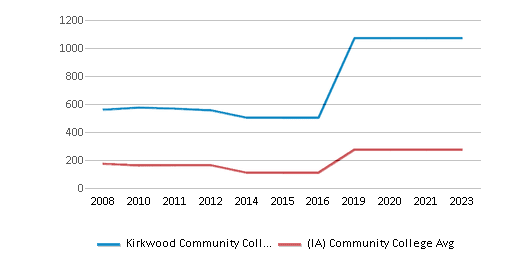
School Calendar
Student Body
The student population of Kirkwood Community College has grown by 23% over five years.
The student:teacher ratio of 16:1 has increased from 11:1 over five years.
The Kirkwood Community College diversity score of 0.51 is less than the state average of 0.52. The school's diversity has grown by 13% over five years.
Total Enrollment
17,065 students
163 students
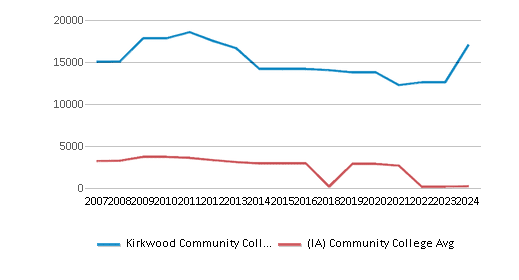
Student : Teacher Ratio
16:1
17:1
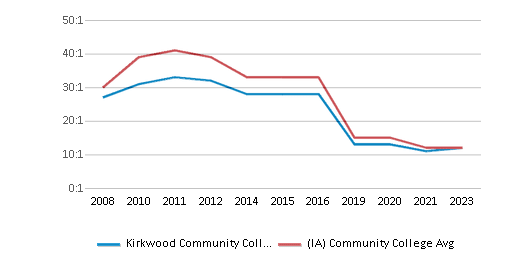
# Full-Time Students
4,743 students
148 students
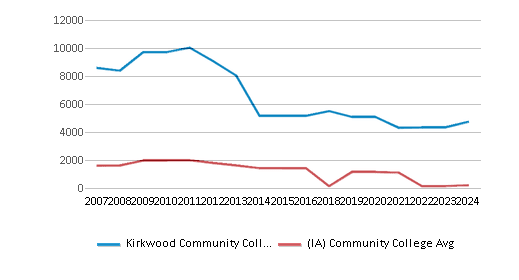
# Part-Time Students
12,322 students
1,992 students
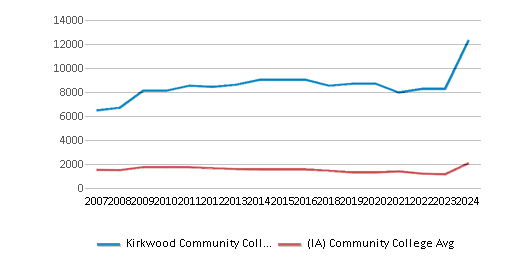
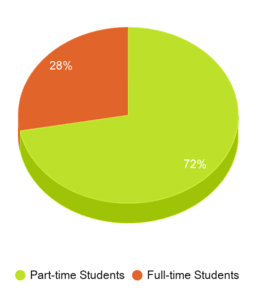
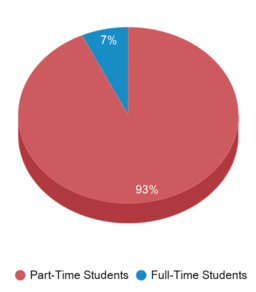
# Enrollment Undergraduate
170 students
333 students
# Full-Time Undergraduate Students
4,743 students
148 students
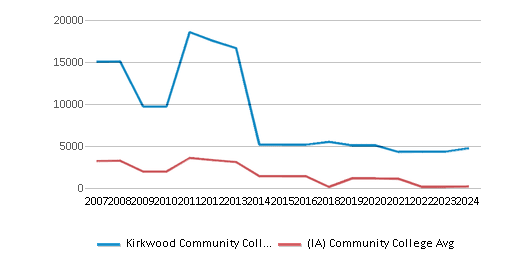
# Full-Time Graduate Students
n/a
61 students
# Part-Time Undergraduate Students
12,322 students
2,075 students
# Part-Time Graduate Students
n/a
403 students
Total Dormitory Capacity
n/a
400 students
% American Indian/Alaskan
n/a
n/a
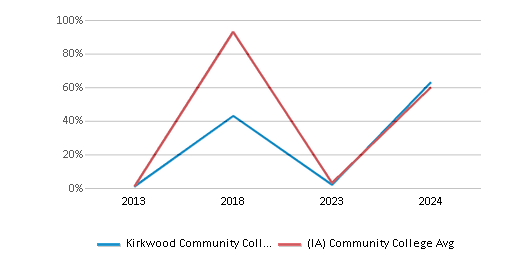
% Asian
2%
3%
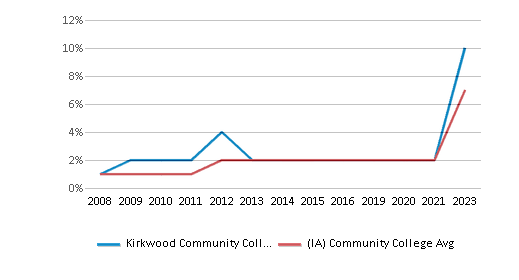
% Hispanic
6%
9%
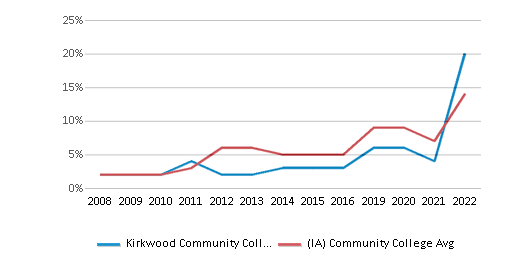
% Black
10%
7%
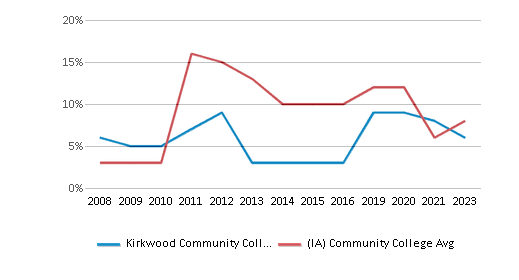
% White
69%
68%
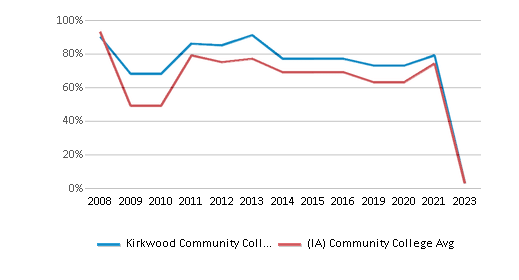
% Hawaiian
n/a
1%
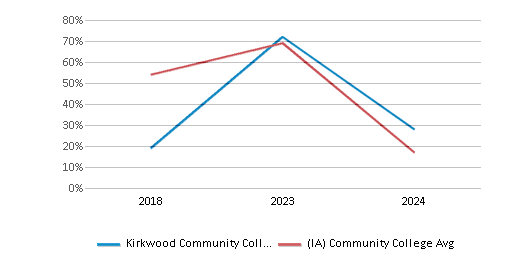
% Two or more races
3%
3%
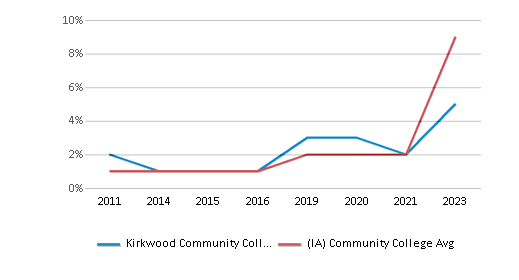
% Non Resident races
2%
1%
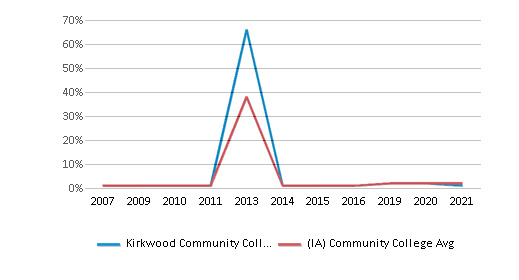
% Unknown races
7%
8%
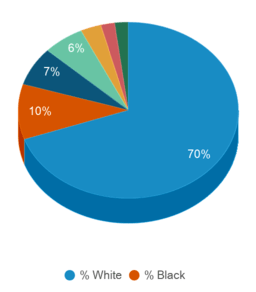
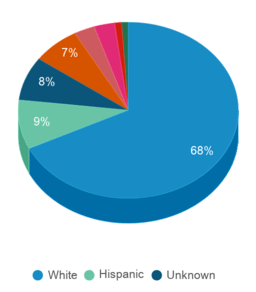
Diversity Score
0.51
0.52
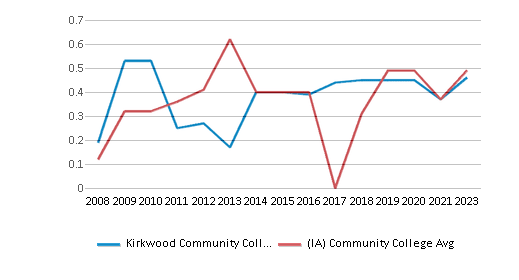
College Completion Rate (Students who graduate in less than 4 years)
0.3567%
0.5143%
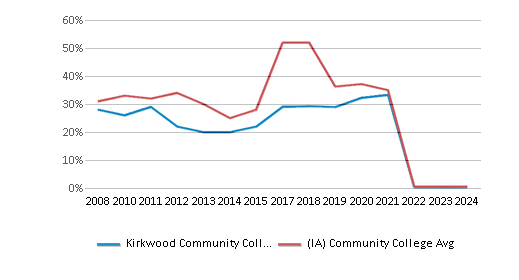
College Completion Rate (Students who graduate in 4 years or more than 4 years)
n/a
0.2578%
Average Graduate Earnings (10 Years)
$36,000
$33,600
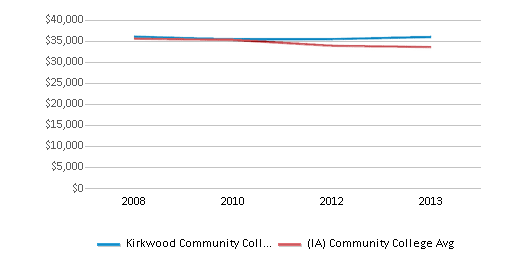
Tuition and Acceptance Rate
The public in-state tuition of $4,060 is less than the state average of $4,331. The in-state tuition has declined by 21% over four years.
The public out-state tuition of $4,900 is less than the state average of $4,920. The out-state tuition has declined by 27% over four years.
In-State Tuition Fees
$4,060
$4,331
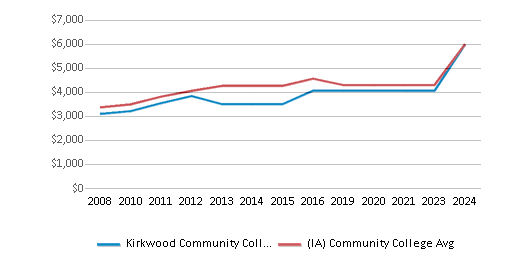
Out-State Tuition Fees
$4,900
$4,920
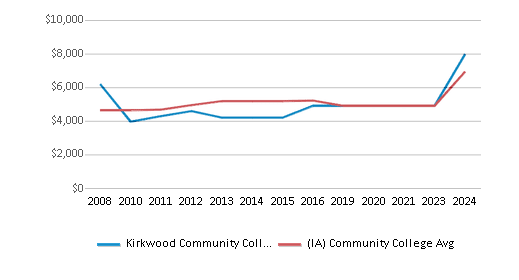
% Students Receiving Some Financial Aid
78%
93%
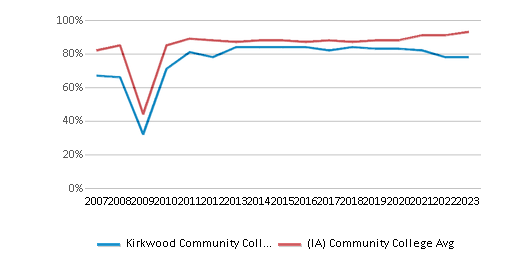
Median Debt for Graduates
$12,000
$11,250
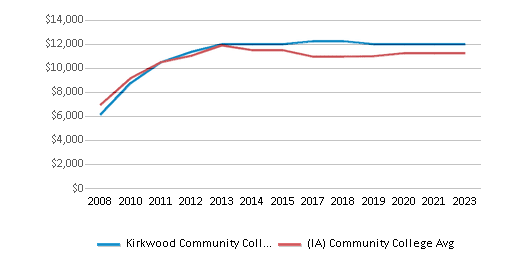
Median Debt for Dropouts
$5,500
$5,500
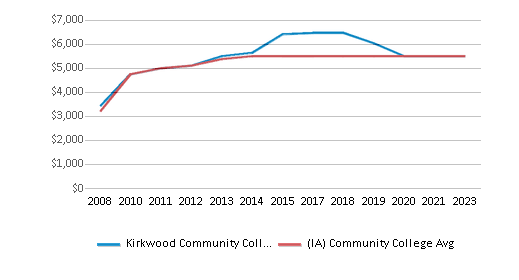
Acceptance Rate
n/a
72%
ACT Composite
n/a
22
ACT English
n/a
22
ACT Math
n/a
21
Source: 2024 (or latest year available) Integrated Postsecondary Education Data System (IPEDS)
School Notes
- Kirkwood Training and Outreach Services (KTOS) provides business counseling and training services to help companies achieve world-class performance through improved business practices, a highly-skilled workforce, and appropriate use of technology. The services are focused on people, processes, and technology. This effort brings together considerable resources from Kirkwood Community College, the community and the State of Iowa. Companies can receive services through workforce development programs, process improvement consultation, production support services, small business performance consultation, performance excellence, environmental and solid waste technical assistance and strategic partnerships. Kirkwood Training Services provides a broad spectrum of employee training and education programs covering four key skills areas: Computer and Information Technology, Technical Training, Health and Safety Programs, and Essential Skills. Through our nationwide network of training resources, you'll have access to renowned training programs and trainers with years of industry experience. But that's only the beginning. Kirkwood Training Services is truly committed to working partnerships with business and industry and other public agencies. By working cooperatively with business and industry we can jointly address many of the workforce and training needs of the region and community.
Frequently Asked Questions
How much does Kirkwood Community College cost?
Kirkwood Community College's tuition is approximately $4,060 for In-State students and $4,900 for Out-State students.
What is Kirkwood Community College's ranking?
Kirkwood Community College ranks among the top 20% of community college in Iowa for: Largest student body.
Recent Articles

Obtaining Your Bachelor's Degree at a Community College
Explore the evolving landscape of community colleges offering bachelor's degrees, addressing affordability, accessibility, and workforce needs.

A to Z of Community College Certificates and Courses
From business and healthcare to technology and skilled trades, the article showcases the breadth of options available to students seeking to enhance their knowledge, develop new skills, or pursue career advancement.

What is a Community College?
This comprehensive guide explains what a community college is, its history, and its role in higher education. It covers the types of programs offered, differences from four-year colleges, benefits of attending, and important considerations for prospective students, providing valuable insights for those exploring educational options.









